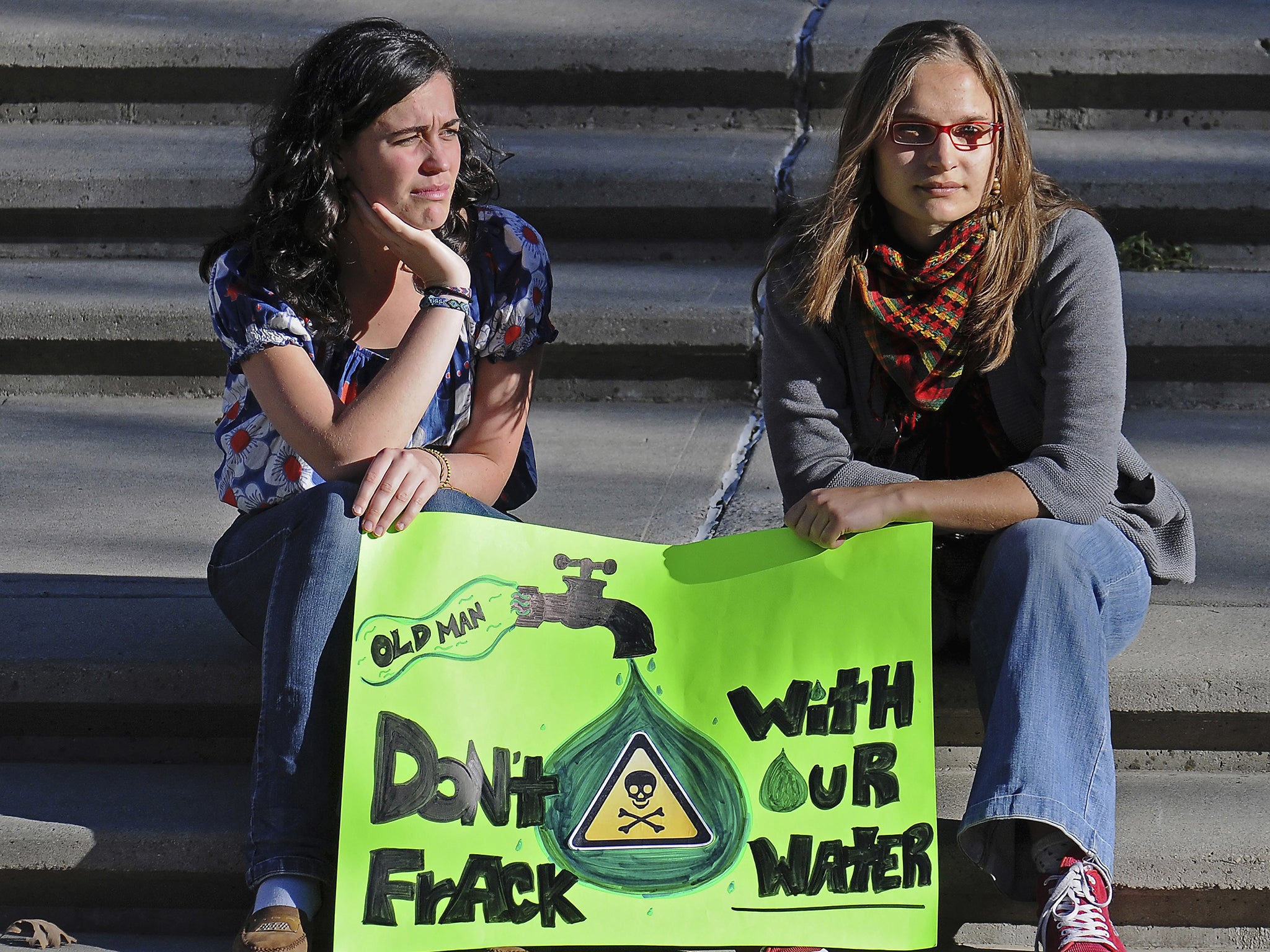Women 'don't understand' fracking due to lack of education, industry chief claims
Professor Averil Macdonald said men were more in favour of the controversial extraction technique because they were persuaded by 'an awful lot of facts'

Many women are against fracking because they “don’t understand” the process due to a lack of education in science, a leading expert has claimed.
Professor Averil Macdonald, chairwoman of industry body UK Onshore Oil and Gas and emeritus professor of science engagement at Reading University, told The Times newspaper that men tended to be more in favour of fracking than women because they were persuaded by “an awful lot of facts”.
Fracking is a controversial method of obtaining mainly shale gas by fracturing the rock with high pressure jets of water mixed with other chemicals. There have been a number of concerns about the potential for earthquakes, pollution of ground water and the air, and the industrialisation of the countryside.
Environmentalists also argue that fracking should not be introduced on a wide scale because gas is a fossil fuel which will contribute to global warming. However some scientists have claimed that using the gas would be better than burning high carbon fuels like coal.
Professor Macdonald is a board member of Women in Science and Engineering, which seeks to encourage women to work in the sector.
She told the Times that women, “for whatever reason”, had not been convinced by the “facts” about fracking and instead trusted their “gut reaction”.
“Frequently the women haven’t had very much in the way of a science education because they may well have dropped science at 16. That is just a fact,” she said.
What I hope is that I can make the women who are concerned comfortable that the myths they are worried about are myths
“Women do tend not to have continued with science. Not only do [they] show more of a concern about fracking, they also know that they don’t know and they don’t understand.
“They are concerned because they don’t want to be taking [something] on trust. And that’s actually entirely reasonable.”
On the other hand, men appeared more willing to accept fracking, Professor Macdonald said.
“Why are men persuaded? That’s because an awful lot of facts have been put forward. [Men] will say, ‘fair enough, understand,’” she said.
“But women, for whatever reason, have not been persuaded by the facts. More facts are not going to make any difference.
“What we have got to do is understand the gut reaction, the feel. The dialogue is more important than the dissemination of facts.
“Women are always concerned about threats to their family more than men. We are naturally protective of our children. I would similarly be concerned but I read the literature and I feel comfortable that I understand.
“What I hope is that I can make the women who are concerned comfortable that the myths they are worried about are myths.”
Join our commenting forum
Join thought-provoking conversations, follow other Independent readers and see their replies
Comments